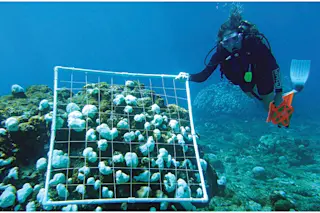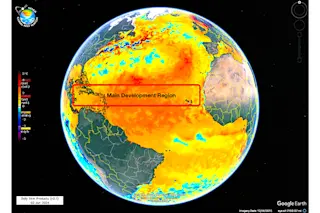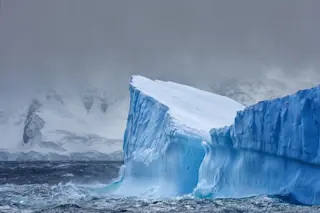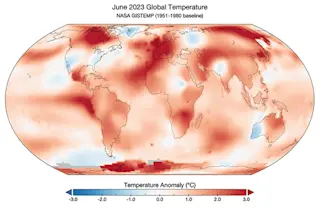The idea that the Mediterranean had once dried up was first proposed more than two decades ago, when drill ships began pulling up extremely salty sediment cores from the seafloor. Salt deposits are left when seawater evaporates, and these dated from 7 to 5 million years ago, a time when much of the world’s water was locked up in polar ice and tectonic activity closed the Strait of Gibraltar, cutting off the sea from the Atlantic. Last May, geochemist Klaus Wallmann of the geomar Research Institute in Kiel, Germany, reported new evidence that those conditions had actually converted the Mediterranean into a deep, dry basin.
Off the coast of Crete, in a two-mile-deep depression called the Discovery Basin (indicated by yellow dot), Wallmann and his colleagues found a large underwater lake of extremely salty brine sitting above a thick deposit of salt. This is not your average brine: it is ...














